June Enquirer:
Garden Prophets, Backyard Pesto Recipe, FREE Writing Workshop
An Unlikely Prophet, Creeping Charlie
I spend a lot of my time trying to know and understand the world. More precisely, I spend a lot of time trying to understand my place in the world, and my reactions to many people and events. I’d like to have a more curious and open nature—one that trusts that all is well. But I’m cynical and suspicious, more junkyard guard dog than pampered pussycat.
Frequently, I am lost. I can’t make sense of myself, others, or the world. When confusion overwhelms me, I send myself out to the garden to try to sort things out.
Even there, I’m often confused. Is that fluffy, silvery plant—about mid-shin and midway in the garden—a weed? Having passed it seven days in a row, sparing it the quick yank of death, I decide, ignoring my own rule to allow things to stay until they declare themselves friend or foe, to give it a tug. Out it pops, and as it does, I’m reminded that it’s the hibiscus. I’ve weeded hibiscus from my garden three times now—and will replant it for a fourth.
The last time I planted it, I put a bright orange winter snow stake next to it, so I’d remember that despite its weedy early-spring appearance, I should leave it alone. After three successful gardening seasons, I thought I’d learned what hibiscus looked like and could now safely remove the ugly orange stake.
I was wrong.
Hibiscus, an August bloomer, looks like an intruder in June. A new foraging friend and guide is teaching me that I mistrust nature at my peril. “Weeds are plants that have lost their narrative.” Ralph Waldo Emerson said weeds are plants whose virtues we haven’t yet discovered. But that attitude—however poetic—is privilege and presumption at their worst.
Indigenous peoples often understood that all plants have their uses. They knew how and when to use them. The Garden of Eden was alive to First Nations; they lived with nature as a part of it, neither higher nor lower. It’s Western culture that lost the relational reciprocity and knowledge. We, inheritors of the Enlightenment, assume a smug hierarchy, placing ourselves closer to angels, dismissing the wisdom of plant, animal, and mineral. We dismiss, too, our relationship and responsibilities to nature.
If there’s a totem plant for my junkyard-dog belligerence toward nature’s profligacy, it is creeping Charlie. A gardener for forty years, I’ve found this plant bedevils every garden I’ve ever tended. Creeping Charlie is a member of the mint clan. You can identify the mint clan by their square stems, strong scents, and wild habits. They are profligate spreaders. Efforts to pull them, more often than not, are only effective in helping them branch and grow more vigorously.
Creeping Charlie requires hand-to-hand combat. I have to remove my gloves and slowly, patiently, tug at its underground and overground root system, trying to trace its lineage from wherever I find it to the root of the parent plant. I am never successful at reaching the parent. And once dropped, I can never find the thread of root in the tangle of soil that will lead me to it.
What little I gather goes straight into the city lawn-waste bin. It needs the intense heat of a large compost pile to kill it. Creeping Charlie treats my home compost pile like a spa day. It spreads everywhere in the compost, contaminating every inch of soil I harvest with its tendrils of mayhem.
My new friend and guide, unaware of my strong moral outrage and indignation at Creeping Charlie’s insults and antagonism, said, “This”—holding a long string of its purplish-green leaves and pretty purple flower (isn’t it just like the enemy to dress in a fashion that can delight?)—“is good for you.”
I scoffed.
“Really,” she persisted. “It’s high in vitamin C, iron, and potassium. It has anti-inflammatory and antiviral properties.”
Trust, but verify is the mantra of every junkyard guard dog. My guide was right. Now, if not quite a friend, Creeping Charlie is no longer a foe. Though like many things in life, it still deserves a watchful eye.
How often do I treat perceived insult and antagonism in kind? And what if I still live deaf, dumb, and blind in the Garden of Eden? How many other people, plants, or minerals have been prophets, urging their divinely inspired gifts upon me, while I indulged in resentment and hatred toward them?
I like to pretend I hold sway in my garden, as though anything is ever truly mine, and not some community good. Or that in my frail humanity, I control anything, even my own thoughts.
I haven’t worked up the courage to eat Creeping Charlie, though I have a recipe to make a pesto of it. I haven’t really warmed up to it, though my feelings have softened into something like tenderness. Even that may be overstating it. I’m cordial.
Peace and grace have such difficulty flourishing in my stony heart-soil.
All prophets come in difficult disguises, speaking words of wisdom. No matter how often they are shunned and silenced, still they persist. Not only do I see Creeping Charlie as less of a threat, but the junkyard guard dog in me might relax its tense stance at the garden gate and realize: here and now is a kind of paradise.
xo
Felicia
Workshops
You Won’t Want to Miss This FREE Workshop!!
Build Worlds, Loosen Grips
Control says: “Stick to the rules.” Curiosity whispers: “What if?”
On June 17, fantasy author and UNI creative writing professor Brooke Wonders invites you to let go of limits and build something extraordinary. Whether you're an aspiring author or an enthusiastic reader, join us upstairs as part of the Author Seedbed Series at the Waterloo Public Library from 2–3:30 PM for a hands-on worldbuilding workshop.
Through prompts and guided questions, you'll discover just how far your imagination can go when you let it.
June 17, 2-3:30, Waterloo Pubic Library, FREE!
June Recipe: Backyard Pesto
This recipe comes courtesy of Una Biologicals. And a warning, if you use, as I confess we do, lawn chemicals, don’t use your own backyard plants. I use only hand weeding in the garden. But out of an abundance of caution, I wouldn’t use the Creeping Charlie from my own gardens. Find your own local wild spot. Here in the Cedar Valley, there’s an abundance of Creeping Charlie at Greenbelt Lake.
Ingredients
2-3 garlic cloves
If you forage some wild alliums, you can reduce or replace the garlic cloves
½ cup nuts or seeds
Hemp seeds, pine nuts, walnuts, pistachios, sunflower seeds, almonds, or a blend
If desired, lightly toast before adding.
3 packed cups of fresh herbs and/or greens
Use any combination of these or others: Basil, parsley, dill, fennel, marjoram, mint, thyme, oregano, edible weeds, vegetable greens (arugula, spinach, radish tops, carrot tops, kale)
2 tablespoons lemon juice
Start with the juice of half a lemon and add to taste
Salt and pepper to taste
You can start with ¼ teaspoon of each and add more to taste
¼ cup grated parmesan, romano, or nutritional yeast
If using nutritional yeast, start with ⅛ cup (2 tablespoons), and increase to taste
½ cup extra virgin olive oil
Place garlic in the food processor; pulse until finely chopped.
Add the nuts, greens, salt, and pepper; pulse until nuts and greens are finely chopped.
Now, turn your food processor on to continuously blend, and slowly pour the olive oil in, until the mixture is well-combined. Stop once it is combined if you like a thicker textured pesto, or blend longer if you want it smooth.
Finally, add parmesan and pulse 2 or 3 times.
Now use your pesto on pasta, sandwiches, stirred into soups, or to coat your fish or chicken!
Enquirer: Notes of Interest
This month, I collected these little gems about art, literature, and nature, many of which came from your ideas and suggestions. Please let me know if you find or notice something that amazes or delights you. This month, I'm exploring trust vs. control. How do we allow life and our circumstances to elicit responses that lead from a posture of curiosity rather than defense?
When Curiosity Leads the Way
In a world that often pressures us to control outcomes, what if we chose curiosity instead? What if we let circumstances—both unexpected and planned—invite us to respond with openness rather than defense?
In that spirit, The Cedar Falls Public Art Committee is calling for 2D artist submissions. Three artists will be selected to showcase their work. Could this be your next step in trusting the process and letting your creativity speak?
Deadline to submit: July 1
Learn more & apply here.
Questing: A New Notebook
One of my favorite things about being a journalist was carrying my reporter’s notebook everywhere. I loved the size of it. It fits in my palm. The feel of it, I can hold it with one hand while writing with the other without any fiddley fussing. The way it makes short notes meaningful.
I was reminded of this love affair in reading Jillian Hess’ excellent newsletter, Noted, in which she described Joan Didion’s recently released papers. Didion kept daily notes, which she typed up each night. She mined these notes to enrich her writing.
Why am I not doing this? Especially because I’ve given myself over to a Nature Quest and art journal. These reporter’s notebooks are much easier to carry around and capture what interests me. A box of 12 arrived. I can’t believe I ever wandered away from using these.
Not the Same Old…..
I’m making paintings just for myself these days. Soon, I’m sure I’ll be back to sharing more of them. For now, I’m trying a new style of painting. It’s s-l-o-w going. I discovered a FREE resource that I’m thrilled to share. It’s Rae Campbell’s Watercolor Studio.
Until next month, may you meet the unknown with open hands, trusting that curiosity will lead you where control never could.
With wonder, Felicia
Spark Your Creativity Newsletter
Month Recipe:
Enquirer: Notes of Interest
This month, I collected these little gems about art, literature, and nature, many of which came from your ideas and suggestions. Please let me know if you find or notice something that amazes or delights you. This month, I'm exploring walking.
Finding Hope in Uncertainty
A panel of young advocates, including climate activists, will share their experiences, challenges, and how we sustain hope while advocating for change. Together, we’ll reflect on transforming despair into meaningful action and hope for the future—preregistration required. Click here to register.
Try the Wrong Sense
I’m a huge fan of Rob Walker’s newsletter, The Art of Noticing. In it, he constantly introduces me to new ways to savor life. His prompts play on our expectations of certainty and how we expect things to unfold. His discussion with Bianca Bosker had me running to my library to reserve this book.
Bianca says, “We might like to think we see the world objectively and accurately, like video cameras, but really, vision is a hallucination. We all have "filters of expectation" that preemptively dismiss, ignore, and prioritize the raw data coming into our brains, even before we get the full picture.” Read the full exchange here.
The Only Thing that Makes Life Possible



This brilliant essay by Mandy Brown on uncertainty lit the flame of curiosity that triggered the March Newsletter theme. Once lit, the flame was fanned by the work of Aldwyth. Her retrospective, This is Not: Aldwyth in Retrospect, is on display through March 23 at the Coastal Discovery Museum, Hilton Head, SC. It includes photography, painting, fiber, and her later bricolages and epic-scaled collages. You can watch the PBS documentary if you can’t get there to see her work.
If you regularly read the Enquirer and want to support me in creating and posting each week, click the subscribe link below.

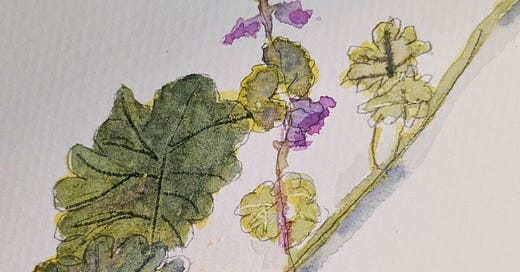




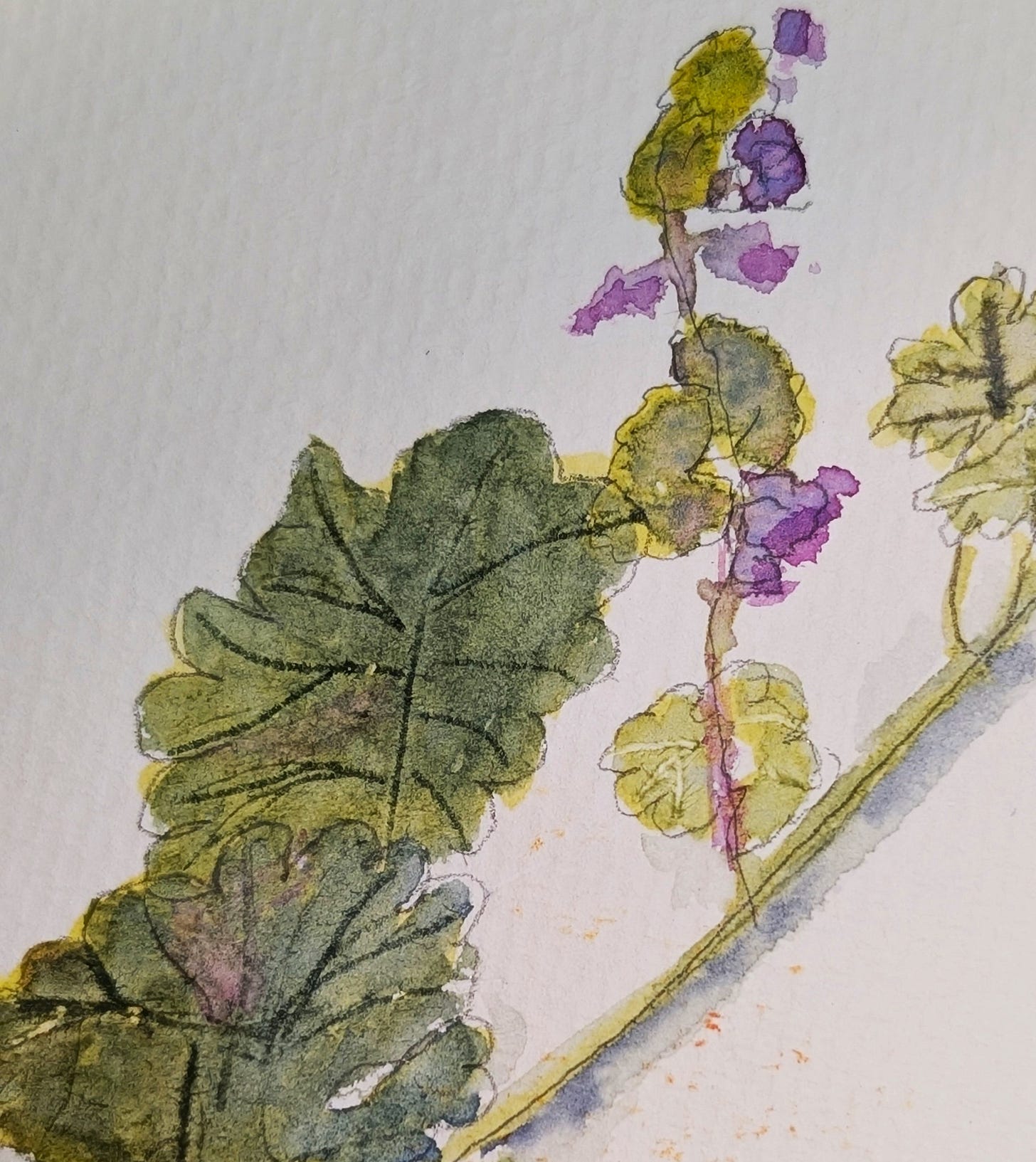

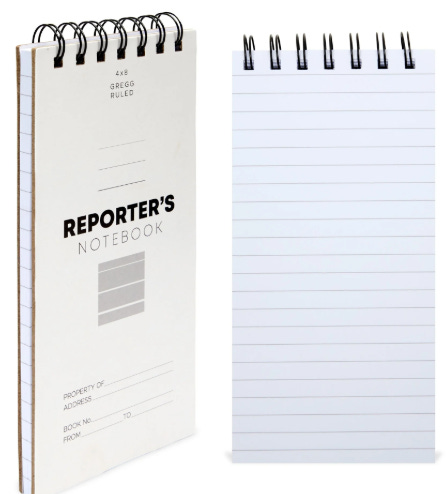
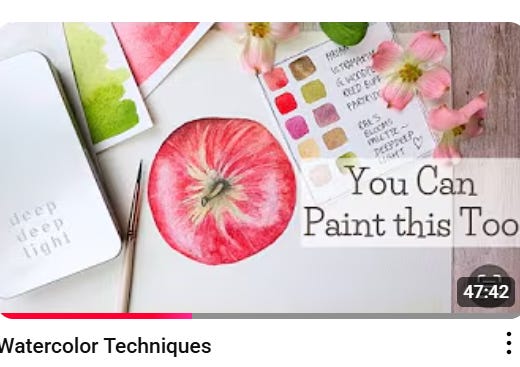
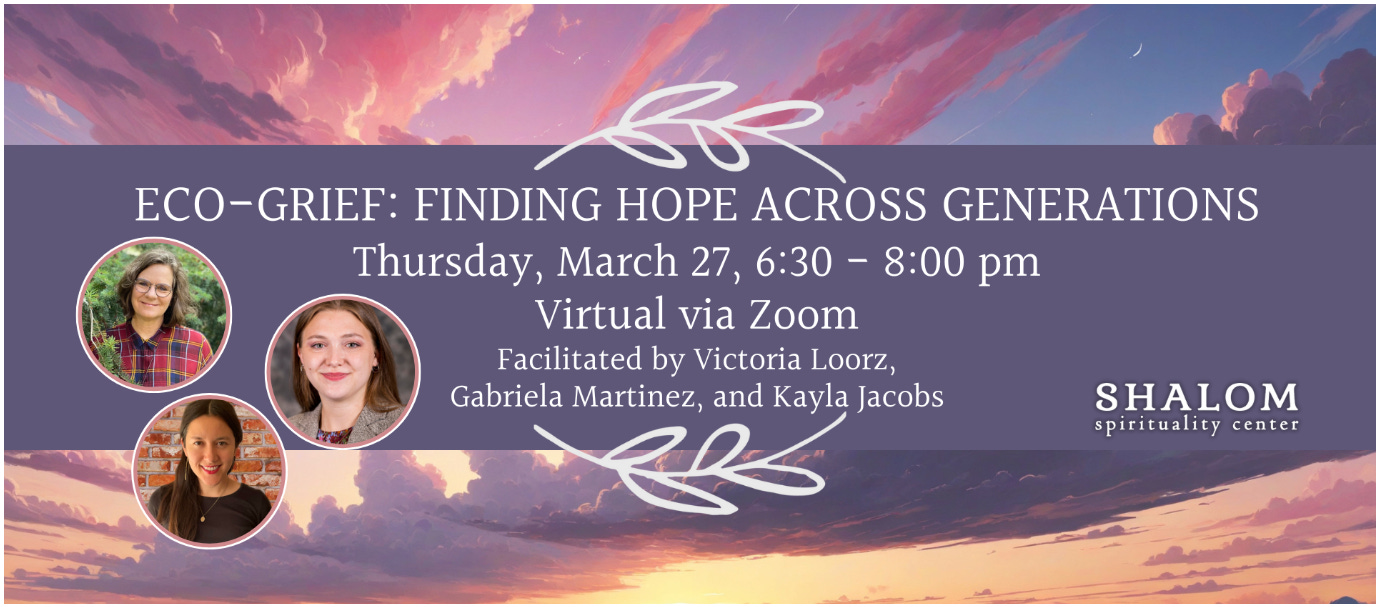

Beautiful as always 💙 It’s hard to trust and to default to seeing the usefulness in everything! And it’s not just learning a new way to look at things—it requires unlearning the old. I remember starting my first vegetable gardens 15 years ago and doing battle with creeping Charlie. Never ending. I now look at all of my gardening a little more like I look at people: if you’re causing harm to others, you have to go (invasives, choking out other plants, and dang poison ivy), otherwise I’m letting the poly cultures thrive!